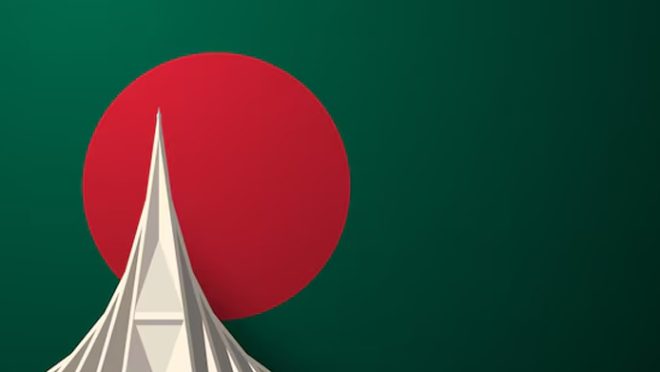Bangladesh at 54, a dramatic coming of age for the tiny nation in South Asia
Bangladesh at 54, a dramatic coming of age for the tiny nation in South Asia

The tiny nation in South Asia will be turning 54 on 26 March 2025. Coming out of the July 2024 uprising, this Independence Day feels a bit different. A day of reflection on how we got to this place, and a day for setting clear expectations about where we want to see ourselves in the future.
26 March 1971 was a day born out of 23 years of oppression under Pakistan rule. Born out of the colonial ashes, Pakistan was a hope for emancipation, yet its racist and discriminatory nature meant that Bangalis no longer could accept being a part of Pakistan. In light of the election in 1970, the cancellation of the General Assembly and dialogues between the east and the west, it was clear that separation and independence was the only way forward.
After a gruesome 9-month battle, Bangladesh was born, out of the sacrifices that very few nations in history had to endure.
Unluckily, this was not the last battle for democracy, freedom, and rights the nation had to fight. The independent Bangladesh often failed to meet the needs of the people, and again in 1990, the nation erupted to bring back democracy against an autocrat. And again in 2024 we had to see another uprising with thousands of lives lost in order to come out of the grips of yet another autocrat.
This backward progression under selfish governments means that the nation, so hopeful after independence, has failed to gain stable ground. On various social indicators of progress, Bangladesh lags behind most nations. In the Global Peace Index 2024, Bangladesh is positioned 93rd out of 163 countries, reflecting its state of peace and security.
The governments after independence often did not put any effort in strengthening the institutions which are a must for ensuring rule of law. For example, according to the World Justice Project’s Rule of Law Index 2024, Bangladesh is ranked 127th out of 142 countries which reflects the country’s lack of adherence to its own legal framework.
The state of the country economically may have improved, but not for all. The vulnerable and the poor are yet to be compensated for the fruits of their labour, because the inequality factors have ensured that Bangladesh is still stuck under the threshold of cheap labour wages, which makes any policy in improving the rights of the working people a direct threat to the business elite. The country is listed among the worst for working people, indicating significant violations of trade union rights under the Global Rights Index 2023. The political landscape is beholden to the business class in terms of financing the parties and directing policy.
The recent uprising has again energised the masses in terms of setting new expectations for nation building. Moving forward, the newly formed party consisting of young minds, are often touting that this will be the start of a second republic while the opposition for many years, BNP, finds it insulting that a second republic is even deemed necessary.
This bickering distracts from the fact that Bangladesh still has a long way to go. Equality, human rights, and social justice were the three declarations of the first independent government formed in 1971, yet after 54 years, in each of these aspects, the nation failed to progress at all.
Whether a second republic, or the same one just in different shades, the nation still remains filled with violent crimes and corrupt officials neglecting their duty to the country.
The people in power continue to avoid taking responsibility, despite being a government put in the helm to restore order to the chaos.
Also, with an election approaching, political parties must understand that real change is not just about catchy slogans—it requires real action to improve people’s lives.
It is a matter of time, to witness if meaningful change actually manifests this time, or does it remain a veil covering the same old negligence and disappointment.


